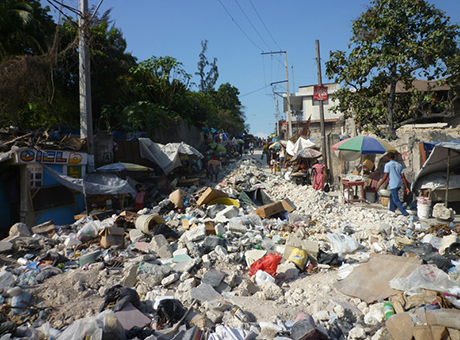#1. Urban Crisis and Humanitarian Responses: A Literature Review

10 April 2015
Authors: Donald Brown, Camillo Boano, Cassidy Johnson, Janani Vivekananda, Julian Walker
Crises, such as disasters, forced migration, conflict and violence are occurring in urban areas with increasing frequency and intensity. The impacts of climate change may increase crises in future. However, humanitarian actors are finding that responding to crises in urban areas presents a new set of challenges. This includes a need for different ways of working than those previously established for humanitarian response in rural areas.
This literature review, commissioned by DFID Humanitarian Policy and Partnerships Group, CHASE, looks at the current evidence-base on humanitarian response and development in urban areas, drawn from published academic literature and humanitarian agency reports.
The review is structured around four main themes: complex and diverse communities; infrastructure systems; markets; and local governance structures and capacities. Its purpose is to identify key knowledge and evidence gaps and areas where further research is needed to inform more contextually appropriate and inclusive approaches to urban humanitarian response. Key knowledge and evidence gaps include the need to better understand urban systems such as urban markets, infrastructure, institutional systems and social relations in urban contexts, local recovery processes, and the experiences and perceptions of local humanitarian actors, including local governments, non-governmental organisations and affected people. Particular attention is also paid to the impacts (direct and indirect) that both crises and humanitarian interventions have on urban areas over-time.
The review concludes by outlining a research agenda for supporting evidence-based humanitarian action in urban settings, including the need to: create platforms for local actors to engage in humanitarian debates, learning and research; create more robust evidence by triangulating different types of information from multiple actors and affected people; increase understanding of urban contextual issues and conditions; broaden learning of the humanitarian community to other fields, including urban development and human settlements; and expand research timeframes to encompass longitudinal studies and offer platforms for coordination for research across humanitarian agencies.
 Close
Close

